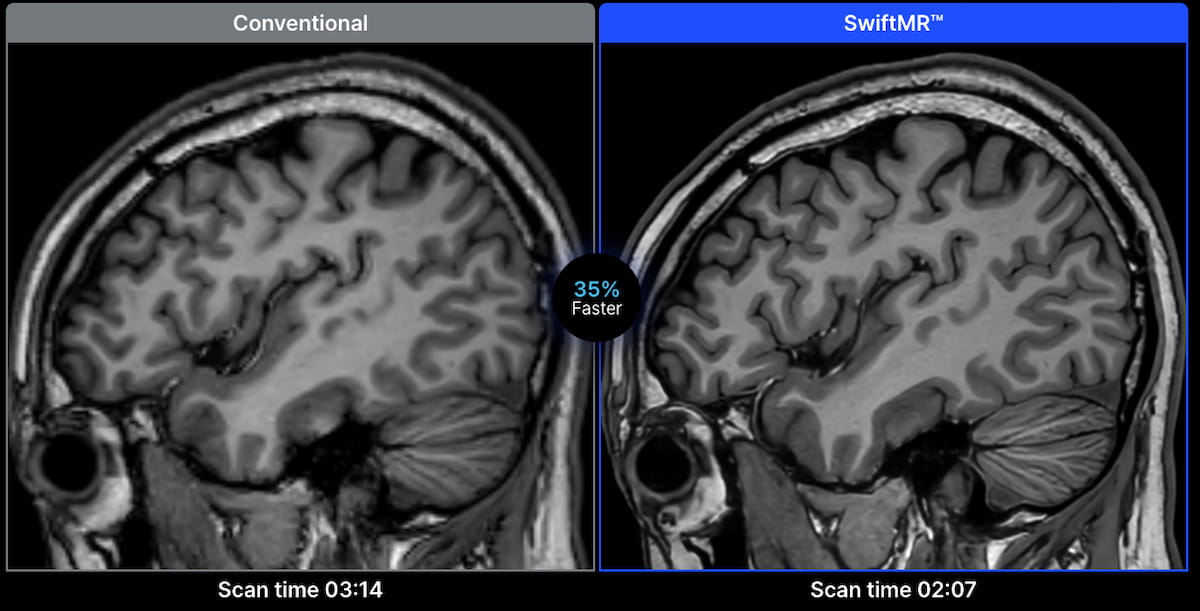
Women's Health MRI
Latest News
Latest Videos

CME Content
More News

Catch up on the top radiology content of the past week.
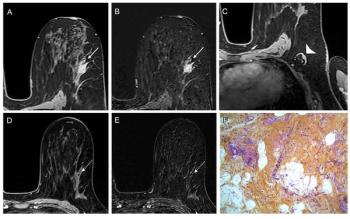
In external testing, a model combining radiological complete response on breast MRI, nodal status and Ki-67 proliferation index yielded an 88 percent AUC for predicting pathologic complete response to neoadjuvant chemoimmunotherapy for patients with triple-negative breast cancer, according to new research.
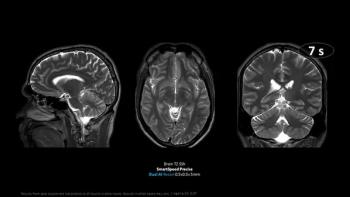
The deep learning reconstruction software reportedly facilitates accelerated MRI scanning and significantly enhanced image sharpness.
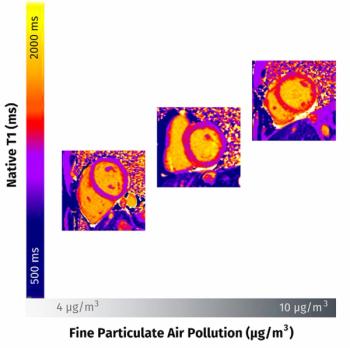
For people with dilated cardiomyopathy and those with initially normal cardiac MRI, each 1 ug/m3 increase in one-year exposure to ambient fine particulate matter with 2.5-um > aerodynamic diameter was associated with significantly more diffuse myocardial fibrosis, according to a recent study.
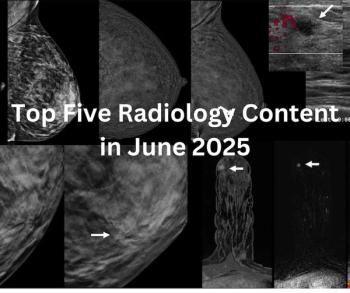
Catch up on the most-well viewed radiology content in June 2025.
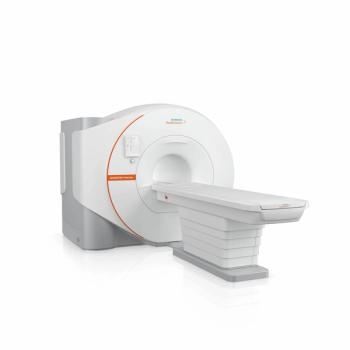
Offering a cost- and resource-saving DryCool magnet technology, the Magnetom Flow.Ace MRI system reportedly requires 0.7 liters of liquid helium for cooling over the lifetime of the device in contrast to over 1,000 liters commonly utilized with conventional MRI platforms.
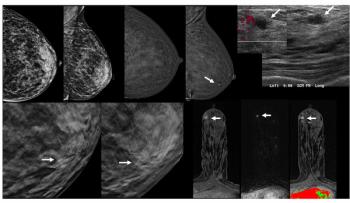
While the addition of contrast-enhanced mammography (CEM) to digital breast tomosynthesis (DBT) led to over a 13 percent increase in false positive cases, researchers also noted over double the cancer yield per 1,000 women in comparison to DBT alone.

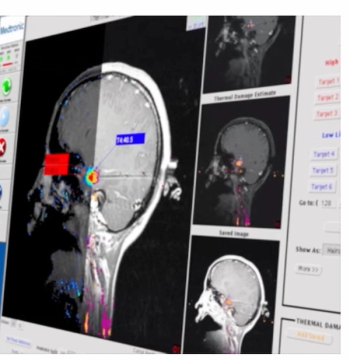
An alternative to an open neurosurgical approach, the Visualase V2 MRI-Guided Laser Ablation System reportedly utilizes laser interstitial thermal therapy (LITT) for targeted soft tissue ablation in patients with brain tumors and focal epilepsy.
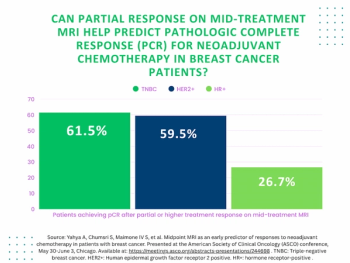
A partial response rate to neoadjuvant chemotherapy on mid-treatment MRI preceded a higher pathologic complete response (pCR) in 61.5 percent of women with triple-negative breast cancer, according to research presented at the American Society of Clinical Oncology (ASCO) conference.
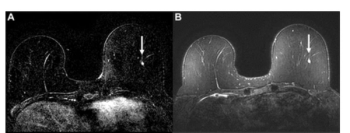
Assessing the simulated use of AI-generated suspicion scores for determining whether one should continue with full MRI or shift to an abbreviated MRI, the authors of a new study noted comparable sensitivity, specificity, and positive predictive value for biopsies between the MRI approaches.

For patients with inconclusive ultrasound results, abbreviated breast MRI offers comparable detection of intraductal papilloma as a full breast MRI protocol at significantly reduced times for scan acquisition and interpretation, according to a new study.

Catch up on the top radiology content of the past week.
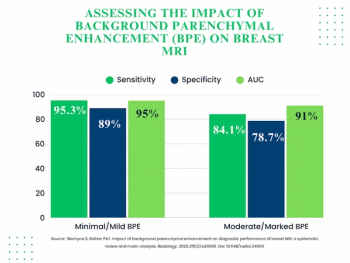
Moderate or marked background parenchymal enhancement (BPE) reduces the sensitivity and specificity of MRI for breast cancer detection by more than 10 percent in comparison to scans with minimal or mild BPE, according to a new meta-analysis.
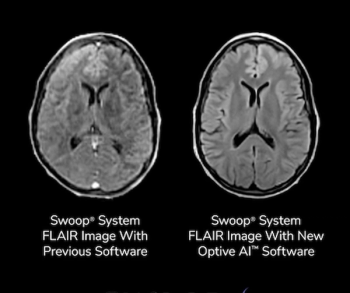
The Optive AI software, the tenth software release for the Swoop portable MRI system, reportedly offers enhanced clarity and anatomical detail for ultra-low-field MRI of the brain.
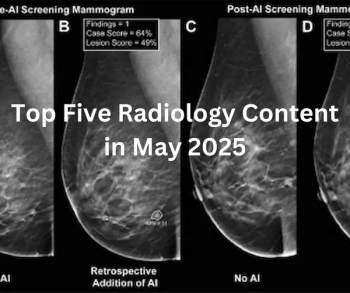
Catch up on the most-well viewed radiology content in May 2025.
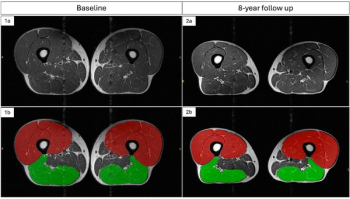
For overweight and obese patients at risk for knee osteoarthritis (OA), eight-year follow-up MRI data revealed a 12.8 percent loss of thigh muscle sub-volume for people who had extensive weight loss in comparison to 5.1 percent for those who retained a stable weight.

Two years after intraarticular knee injections for knee osteoarthritis (OA), study participants who had corticosteroid knee injections had greater OA progression than control patients while the use of hyaluronic acid injections was associated with less OA progression.

Catch up on the top AI-related news and research in radiology over the past month.

Catch up on the top radiology content of the past week.
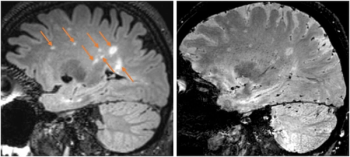
Recognition of the central vein sign with a six-minute MRI demonstrated comparable sensitivity for multiple sclerosis (MS) detection in comparison to oligoclonal band (OCB) assessment, which requires lumbar puncture, according to newly published research.

For women with dense breasts and negative mammograms, contrast-enhanced mammography and abbreviated MRI provided respective cancer detection rates of 19.2 per 1000 exams and 17.4 per 1000 exams, according to new research.
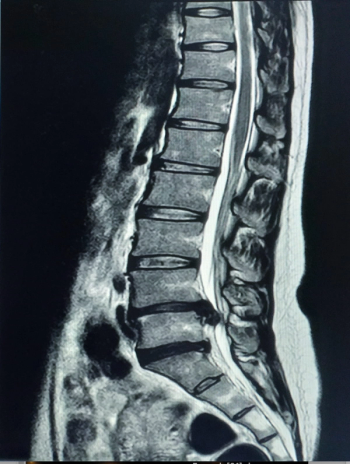
The MSKai software provides AI-powered segmentation, labeling, and measurement tools for assessment of T2-weighted MRIs of the lumbar spine.
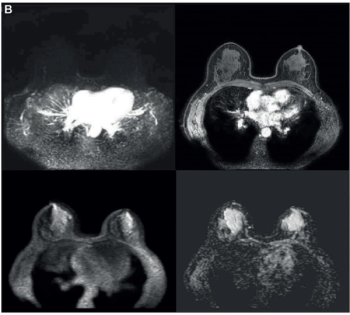
Emerging research suggests that abbreviated breast MRI offers comparable sensitivity and specificity as multiparametric MRI in women with extremely dense breasts with a nearly 50 percent reduction in reading time for radiologists.
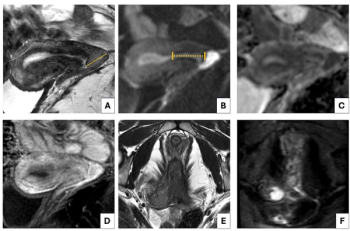
New guidelines from the European Society of Urogenital Radiology (ESUR) offer pertinent principles and recommendations for MRI use in considering fertility-sparing treatments for women with ovarian, endometrial, or cervical cancer.

